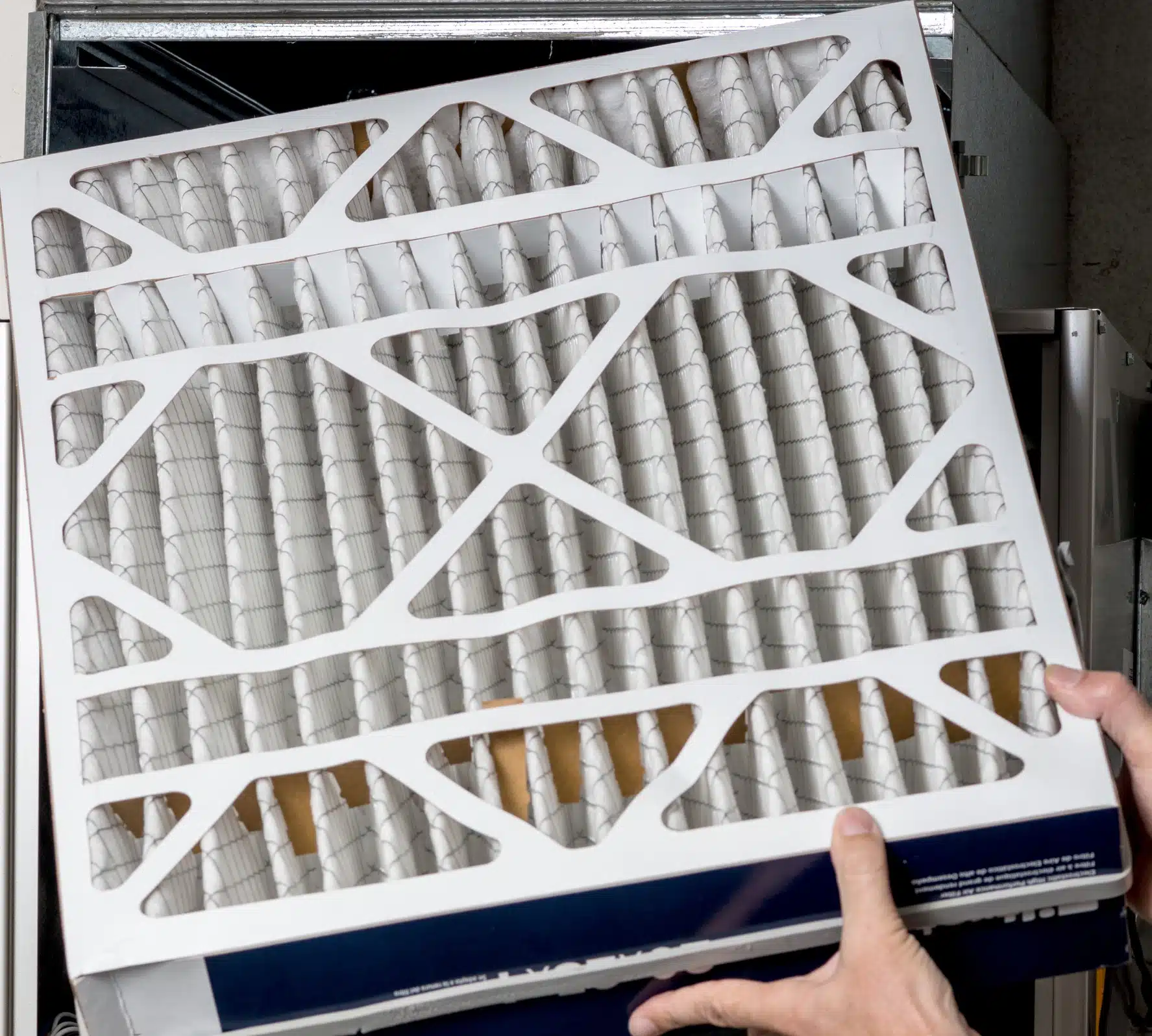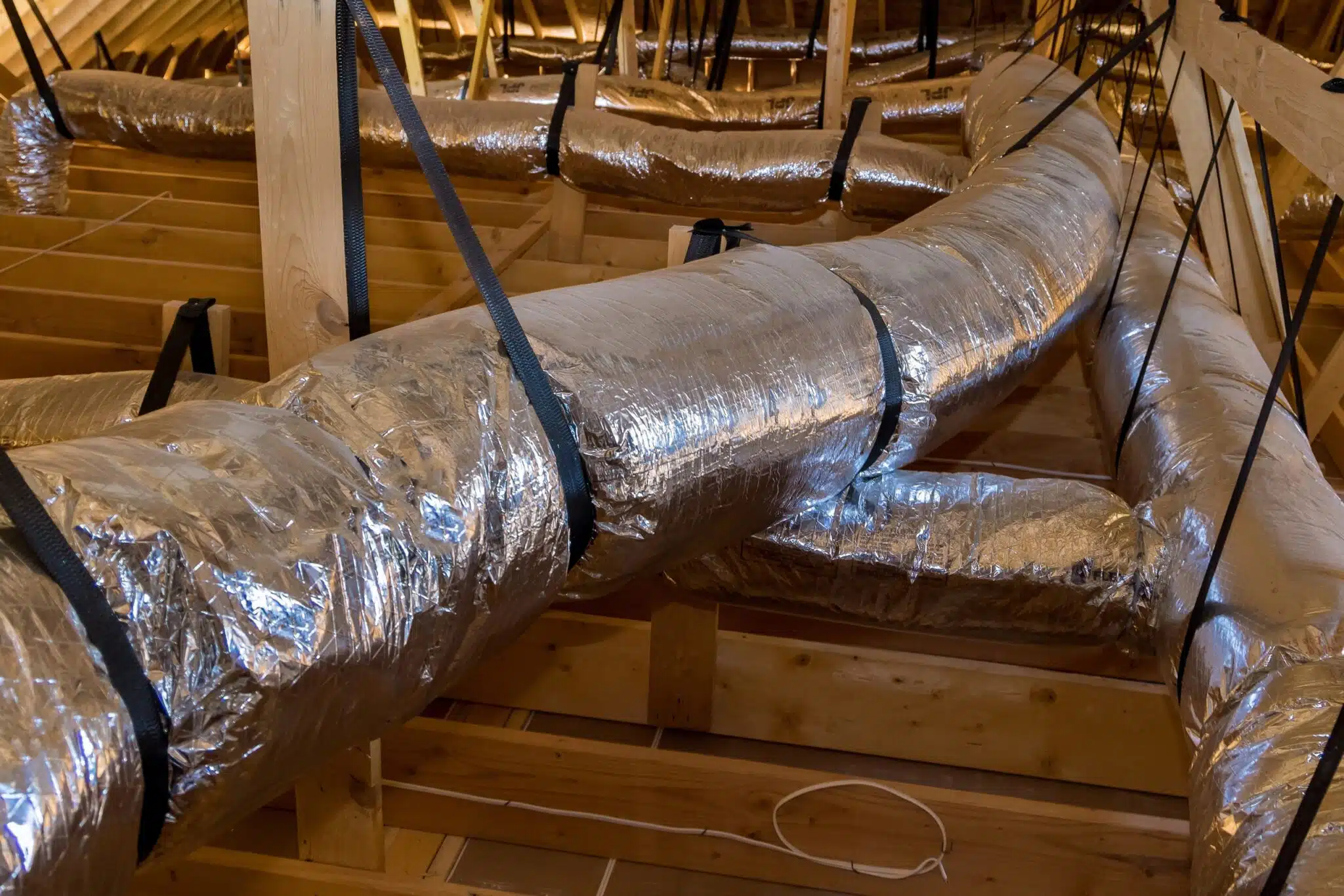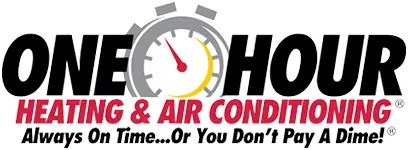As allergy season peaks in June, Lancaster and Harrisburg, PA, residents often feel the effects more intensely indoors. Pollen, dust, pet dander, and mold sneak into homes, worsening symptoms and decreasing comfort. That’s where the role of HVAC in Allergy Reduction becomes crucial, offering a solution to ease the air you breathe. A well-maintained HVAC system actively removes airborne allergens, creating a healthier indoor space.
Air filters, humidity controls, and clean ductwork work together to improve air quality across every room. When tuned properly, HVAC systems don’t just heat or cool, they purify. With consistent maintenance, they become a frontline defense against seasonal allergens that sneak through doors and windows. In many ways, a reliable HVAC system transforms your home into a shielded sanctuary.
Using the right filters and professional care, HVAC systems can reduce common triggers like pollen and dust mites. This makes life easier for allergy sufferers during high-risk months. Trusting experts to optimize your HVAC setup ensures you stay protected when allergen levels rise. For anyone sensitive to environmental irritants, investing in your HVAC system is not just smart, it’s essential. The HVAC in Allergy Reduction is your silent partner in comfort and health.
Understanding Allergens in Your Home
Understanding the types of allergens in your home is crucial for effective results with HVAC in allergy reduction. Common offenders like pollen, pet dander, mold spores, and dust mites often move freely through indoor air. A properly functioning HVAC system helps trap these irritants before they spread throughout your living space. That’s why homeowners in Lancaster, PA trust their systems to support cleaner, healthier air.
Routine upkeep is essential for the success of HVAC in allergy reduction efforts. Maintenance includes changing filters and clearing out ductwork to reduce allergen buildup. When ducts stay clean, there’s less chance of allergy triggers circulating throughout your home. In Harrisburg, PA, where seasonal allergens fluctuate, regular maintenance makes a noticeable difference.
Humidity control is another powerful benefit of HVAC in allergy reduction. Mold and mildew thrive in damp conditions, making high humidity a major concern. A well-regulated HVAC system keeps your home’s air drier and less hospitable to these allergens. This approach offers peace of mind and relief, especially during muggy Pennsylvania summers.
Combining air purifiers with HVAC in allergy reduction enhances its overall impact. Purifiers catch even microscopic particles that standard filters might miss. This creates an extra defense line, ensuring your home’s air remains exceptionally pure. For families in Lancaster, PA and nearby areas, this comprehensive method offers real, breathable comfort.
How HVAC Systems Filter Out Allergens
When it comes to comfort and health, nothing beats the impact of HVAC in allergy reduction. These systems quietly work behind the scenes, trapping harmful particles like pollen, dust, and mold spores. As air cycles through the HVAC unit, built-in filters remove these allergens, helping your family breathe easier. For Lancaster, PA residents, this hidden defense can be the difference between restless nights and restful sleep.
But even the best filters need care to perform at their peak. Without regular attention, they clog and lose their ability to clean the air effectively. That’s why consistent maintenance is more than just a recommendation, it’s a necessity. In Harrisburg, PA, where seasonal changes kick allergens into high gear, staying ahead of HVAC upkeep makes all the difference.
Thanks to modern innovations, today’s HVAC in allergy reduction is more powerful than ever. High-efficiency HEPA filters now trap even the tiniest particles, including pet dander and smoke residue. When added to your system, these filters elevate your home’s air quality to exceptional levels. It’s an investment in wellness that pays off with every breath.
A healthy HVAC system doesn’t just filter air, it transforms your home into a haven. It ensures every room gets a steady flow of clean, fresh air, reducing allergy flare-ups. For families seeking long-term relief, there’s no smarter move than prioritizing HVAC in allergy reduction. The peace of mind it brings is simply priceless.

The Importance of Regular HVAC Maintenance for Allergy Reduction
Consistent HVAC maintenance is essential for any effective plan involving HVAC in allergy reduction. In Lancaster, PA, routine checks by professionals keep your system’s filters functioning at full strength. These filters act like guardians, capturing allergens before they spread through your home’s air. Maintaining them well is a simple yet powerful way to ensure healthier breathing indoors.
Harrisburg, PA homeowners know that a well-kept HVAC system offers more than comfort, it’s a frontline defense against seasonal allergens. During scheduled visits, technicians identify leaks, buildup, and other issues that might worsen air quality. This kind of proactive service enhances filtration and extends your system’s life. With cleaner air and better performance, regular maintenance is clearly worth the effort.
New filter technology has amplified the effectiveness of HVAC in allergy reduction. HEPA filters and other high-efficiency options now capture particles that once slipped through, like pet dander and mold spores. These microscopic threats can wreak havoc on allergy sufferers if left unchecked. Adding advanced filters during regular maintenance turns your HVAC into a powerful air-purifying system.
Ultimately, your HVAC’s overall condition plays a huge role in indoor air health. Systems that run smoothly circulate cleaner, fresher air consistently, keeping allergens at minimal levels. Regular maintenance ensures your HVAC operates at peak performance year-round. For families in search of lasting allergy relief, caring for their HVAC system is a smart and impactful choice.
Choosing the Right Filters for HVAC in Allergy Reduction
Selecting the best filters is a crucial step in maximizing HVAC in allergy reduction. For homeowners in Lancaster, PA, HEPA filters are a go-to choice because they trap 99.97% of particles as small as 0.3 microns. These powerful filters target common allergens like pollen, pet dander, and dust mites, keeping them out of your home’s air. Simply upgrading your filter can significantly boost air quality and ease allergy symptoms.
Still, choosing a HEPA filter isn’t enough, it has to be properly maintained. Filters lose their effectiveness as they clog with particles, which is why regular inspections and replacements are essential. In Harrisburg, PA, where seasonal allergens come and go, staying ahead of filter maintenance keeps your indoor air consistently clean. A well-maintained filter ensures your HVAC in allergy reduction stays reliable year-round.
Understanding the MERV rating system can also guide your filter choice. Filters with higher MERV ratings capture smaller and more numerous particles, making a huge difference for allergy-prone households. Choosing the highest MERV rating your HVAC system supports enhances allergen control without overworking your unit. This small upgrade leads to noticeable comfort and cleaner indoor air.
For even stronger protection, consider combining filters with air purification systems. Air purifiers work alongside your HVAC in allergy reduction, capturing particles that filters may miss. This layered approach provides the most comprehensive defense against allergens. With cleaner, healthier air circulating through your home, your entire family breathes easier every day.
The Role of Humidity Control in Allergen Management
Managing humidity levels is a key aspect of utilizing HVAC in allergy reduction. In Lancaster, PA, where humidity can fluctuate significantly, a well-regulated HVAC system prevents the proliferation of dust mites and mold, both of which thrive in moist environments. By maintaining a balanced indoor humidity, these common allergens are kept at bay, contributing to a healthier home environment. This proactive approach ensures that air quality is not compromised by excess moisture.
In Harrisburg, PA, residents often face the challenge of high humidity levels during certain seasons. An HVAC system that efficiently manages humidity plays a crucial role in allergen management. It reduces the dampness that encourages the growth of mold spores, a known trigger for allergy sufferers. Keeping indoor air dry and comfortable, the system aids in creating a living space that is less hospitable to allergens.
The relationship between humidity control and HVAC in allergy reduction is clear. By extracting excess moisture from the air, HVAC systems help to limit the growth of mold and mildew. This action directly impacts the amount of allergens in the home, making it a critical factor in allergy management. It’s a seamless way to enhance the air quality inside your home, ensuring it remains a safe haven for those with allergies.
Furthermore, the effectiveness of HVAC systems in managing humidity underscores their role in promoting a healthier indoor climate. It’s not just about temperature control, it’s also about creating an environment where allergens cannot easily thrive. For individuals sensitive to airborne irritants, this aspect of HVAC functionality is invaluable. It exemplifies how integrated systems can significantly improve living conditions, making homes in Lancaster and Harrisburg more comfortable for everyone.
Tips for Enhancing Your HVAC System’s Allergy-Fighting Capabilities
Maximizing the power of HVAC in allergy reduction starts with consistent professional inspections. These routine checks help identify airflow issues, clogged filters, or aging components that can reduce your system’s efficiency. In Lancaster, PA, having an expert fine-tune your HVAC ensures cleaner air and fewer allergy triggers. It’s a smart first step toward a healthier home environment.
Upgrading to high-efficiency filters is another impactful strategy to strengthen your HVAC in allergy reduction efforts. Filters with superior ratings trap finer particles, reducing dust, pollen, and dander that might otherwise circulate. Harrisburg, PA residents who switch to advanced filters often report noticeable improvements in indoor air quality. It’s a simple change that delivers real, breathable relief.
For added protection, integrate air purifiers with your HVAC system to tackle allergens more aggressively. These units complement your existing setup by capturing particles that standard filters may miss. This dual-filtration approach makes your HVAC even more effective at eliminating airborne irritants. With cleaner air circulating, your home becomes a safer haven for allergy-sensitive occupants.
Finally, humidity control is a hidden hero of HVAC in allergy reduction. Mold and mildew thrive in damp air, triggering symptoms and worsening respiratory conditions. A properly maintained HVAC system balances humidity, making it harder for these allergens to grow. With this level of protection, your home’s air stays dry, clean, and much more comfortable.
Professional HVAC Services and Allergy Reduction
Professional HVAC services are essential for strengthening the role of HVAC in allergy reduction. In Lancaster, PA, experienced technicians can uncover hidden issues that may limit your system’s ability to trap allergens. Their expertise allows them to adjust your system for peak efficiency, improving airflow and enhancing filtration. The result is cleaner, healthier indoor air that makes a real difference for allergy sufferers.
Ongoing maintenance is a key part of keeping your HVAC system performing at its best. In Harrisburg, PA, professionals carry out detailed system inspections that catch problems before they become major concerns. These preventive measures keep your system running smoothly and your indoor air consistently clean. It’s a small investment with big returns for allergy relief and system longevity.
Another advantage of professional HVAC services is their ability to tailor filtration upgrades to your needs. Whether it’s installing HEPA filters or improving your current setup, they provide solutions that boost your system’s ability to capture allergens. This customized support ensures your home becomes a safer space for everyone sensitive to airborne irritants. It’s a smart step in making HVAC in allergy reduction truly effective.
Lastly, humidity control is a powerful but often overlooked tool in fighting allergens. Professionals can calibrate your system to maintain ideal moisture levels, preventing the growth of mold and mildew. This adds another layer of defense in your home’s air quality strategy. By managing humidity and filtration together, HVAC professionals help you breathe easier year-round.

Lifestyle Changes to Complement HVAC Allergy Reduction Efforts
While HVAC in allergy reduction does the heavy lifting, pairing it with simple lifestyle changes can make your home’s air even cleaner. Regularly cleaning floors, furniture, and fabrics helps control dust and pet dander before they overwhelm your system. In Lancaster, PA, where seasonal allergens like pollen can quickly invade your home, keeping surfaces clean lightens the load on your HVAC. This combo strengthens your defense and keeps indoor air feeling noticeably fresher.
Be mindful of your indoor greenery, as some houseplants can harbor mold or attract dust. Although plants offer many benefits, not all are ideal for allergy-sensitive households. Choosing low-pollen varieties and keeping soil dry can prevent mold growth while still bringing nature indoors. In Harrisburg, PA, residents can enjoy plant life without compromising the air-cleansing goals of their HVAC in allergy reduction efforts.
Letting in fresh air is another easy habit that supports cleaner indoor air. Crack open windows during low-pollen hours to let stale air out and fresh air in. This improves ventilation and reduces allergen buildup, working in harmony with your HVAC system’s filtration. For homes in Lancaster, PA, this small change can help transform your space into a low-allergen refuge.
Lastly, switching to hypoallergenic bedding and washing linens in hot water kills off dust mites, a major indoor allergen. This simple step adds another layer to your overall allergy reduction strategy. When used alongside the power of HVAC in allergy reduction, it creates a strong, holistic barrier against indoor triggers. For Harrisburg families, the combination offers real, everyday relief from allergy symptoms.
Frequently Asked Questions
How does HVAC reduce allergies?
An HVAC system plays a crucial role in allergy reduction by filtering out airborne particles. It captures dust, pollen, and pet dander, keeping the air clean. Regular maintenance ensures these filters work efficiently, preventing allergens from circulating. Thus, a well-maintained HVAC system significantly improves indoor air quality, offering relief to allergy sufferers.
Can HVAC filters trap pollen?
Yes, HVAC filters are designed to capture pollen, effectively reducing its presence in your home. These filters act as a barrier, trapping pollen particles before they circulate through the air. For optimal performance, it’s important to replace or clean filters regularly. This maintenance ensures your HVAC system aids in allergy reduction, providing a cleaner, healthier indoor environment.
What is HVAC in Allergy Reduction?
HVAC in allergy reduction refers to using heating, ventilation, and air conditioning systems to lower allergen levels indoors. By filtering out common irritants like dust, pet dander, and pollen, these systems keep the air clean. Regular upkeep of HVAC units ensures they operate effectively, enhancing their role in creating a healthier living space. Thus, a well-maintained HVAC system is a key player in reducing allergies, providing comfort and relief to those affected.
How often to replace HVAC filters?
Replacing HVAC filters regularly is crucial for allergy reduction. Experts recommend changing them every 90 days for standard use. If you have pets or live in a high pollen area, consider replacing them more often, perhaps every 60 days. This practice ensures your system effectively removes allergens, maintaining a healthier indoor air quality.
Is HVAC cleaning necessary for allergies?
HVAC cleaning plays a vital role in allergy reduction by removing built-up allergens within the system. It ensures that dust, mold, and other irritants are not circulated back into your home. Regular cleaning keeps the air flowing smoothly, enhancing the system’s efficiency in trapping allergens. Therefore, clean HVAC systems contribute significantly to a healthier indoor environment, benefiting those with allergies.





